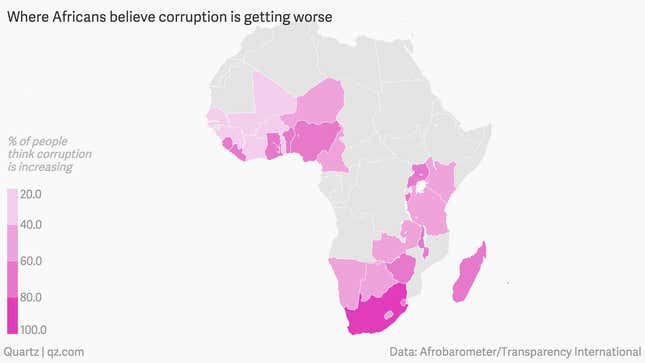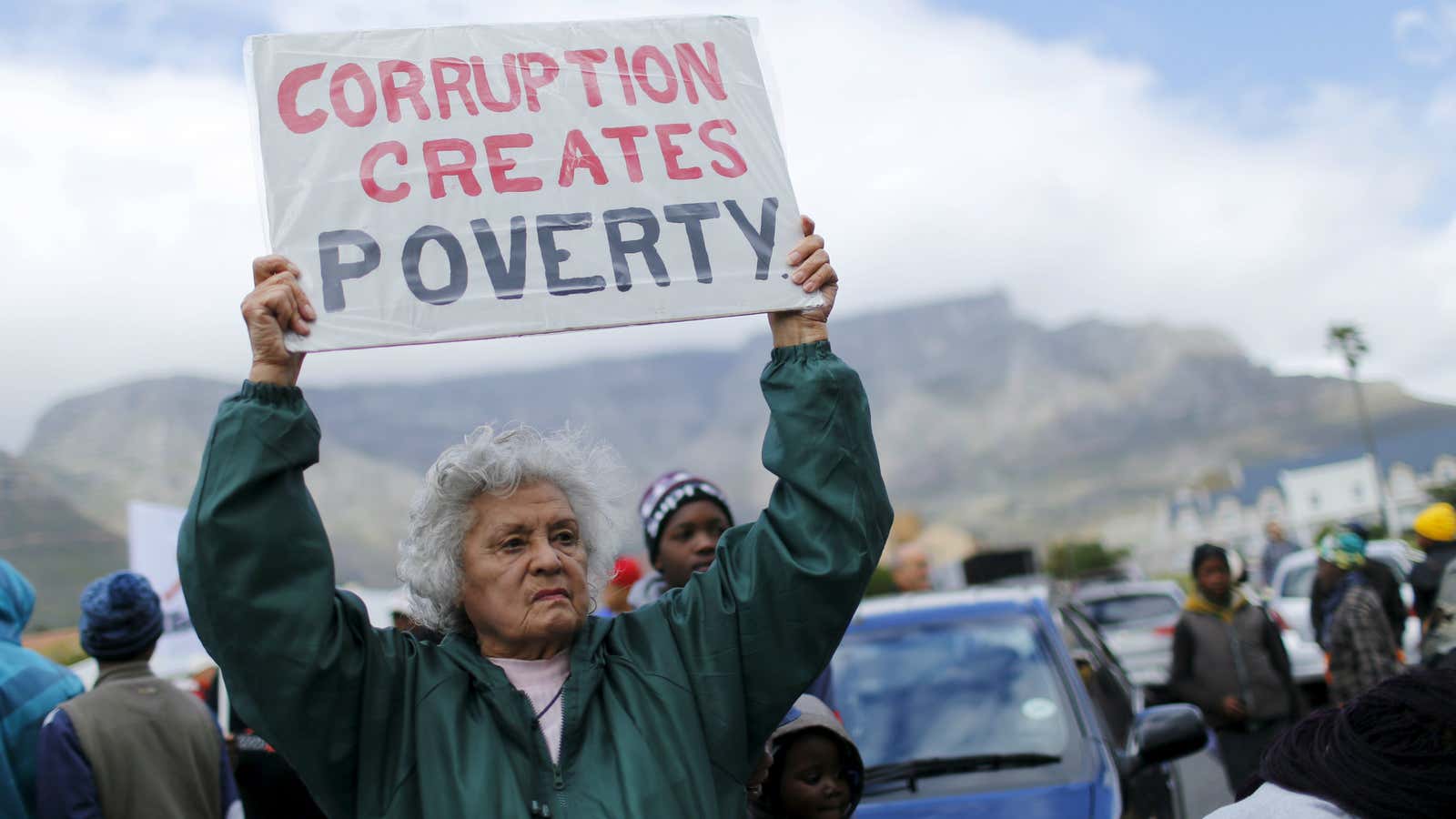Despite democracy spreading on the continent, and improvements on healthcare, education, and the economy, there is one area where Africans believe the region is getting worse—corruption. In fact, over half the Africans contacted for a new poll by Transparency International and the research firm Afrobarometer say corruption is getting worse in their home countries.
Over 43,000 people in 28 Sub-Saharan countries participated in the poll:
The problem appears to be the worst in two of the continent’s largest economies: 83% of South Africans and 75% of Nigerians say corruption in their country is increasing. Most people surveyed in Cote d’Ivoire, Mali and Burkina Faso, on the other hand, say corruption is reducing.

When asked what professions are the most corrupt, Africans ranked police and business executives at the top. Religious leaders are thought to be the least corrupt.
Paradoxically, although many Africans say corruption is a problem few actually want their governments to prioritize it.
Let’s use Nigeria as an example. Nigerians polled overwhelmingly said corruption was rising, confirming the findings of another survey from July that named corruption as the number one issue voters face in Africa’s largest economy. But when Nigerians were asked what Muhammadu Buhari’s new government should focus its energy on, corruption came last.
The same thing can be seen in Tanzania. Despite 56% of Tanzanians telling pollsters that corruption has gone up in the country, the issue was not high on their list of concerns in the recent election.
So while corruption is a problem, voters would like their governments to focus their energies on delivering better public services.
Nevertheless, the Afrobarometer/Transparency International poll indicates that corruption may be a contributing a factor in people not getting the public services they need. More than one in five Africans who responded said they paid a bribe to access public services, and of those 28% identified themselves as the poorest in society.
It is worth nothing that people on the continent are not despairing about corruption. Most Africans, some 53%, believe that they can personally help the fight against corruption.
